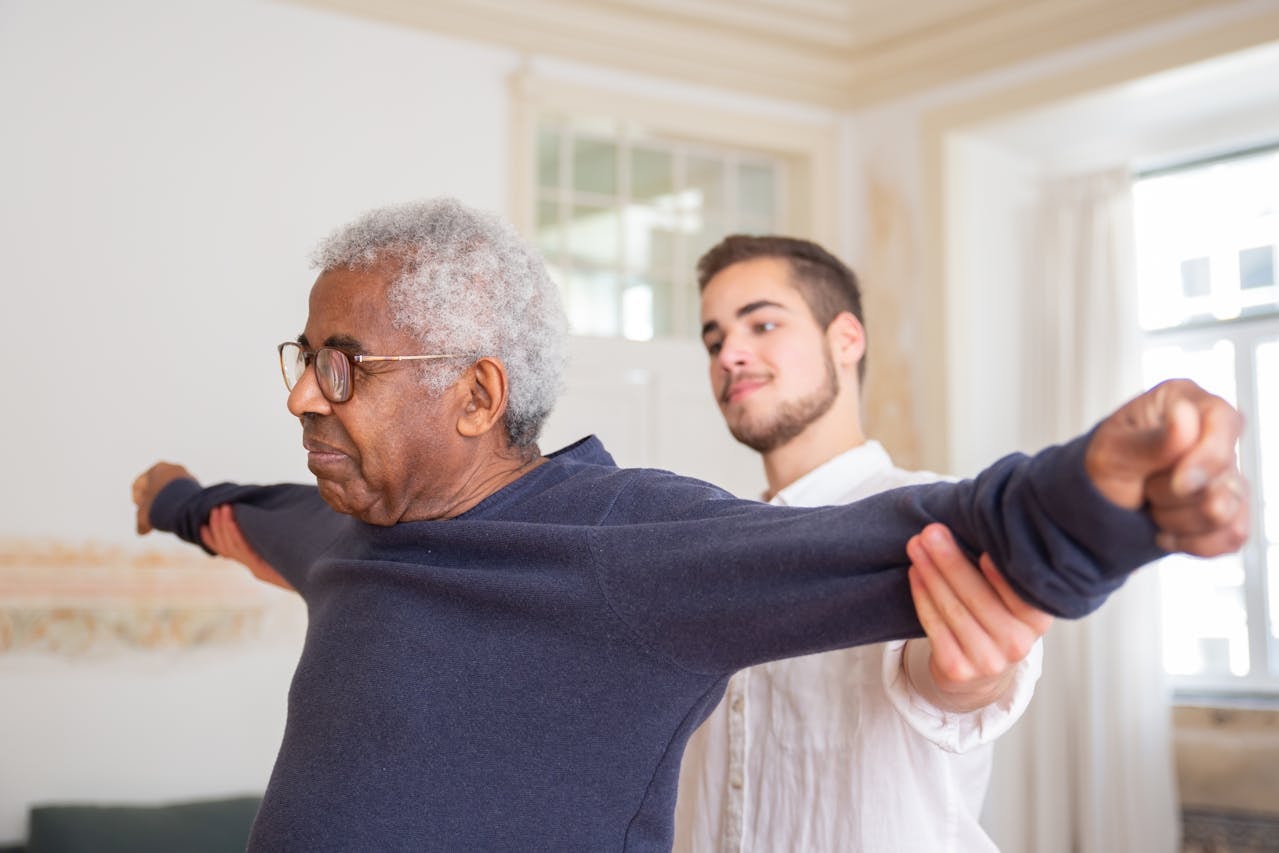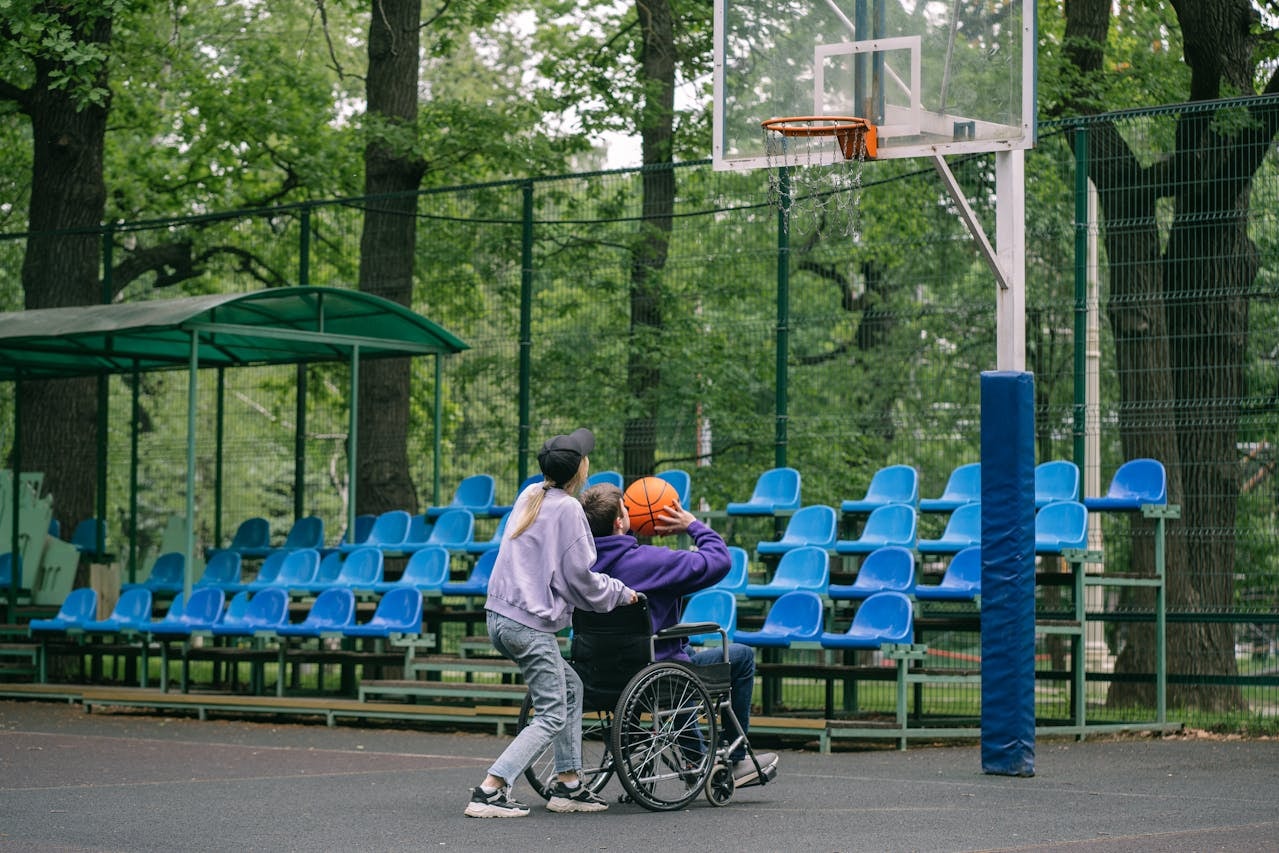The National Disability Insurance Scheme (NDIS) plays a vital role in supporting Australians in providing domestic help for people with limited mobility For many, managing everyday tasks independently is challenging, and accessing domestic help and nursing services can greatly improve their quality of life. This article provides a detailed guide on how the NDIS covers domestic help and related services, explaining the kinds of support available, eligibility, and how to get started.
Understanding the NDIS and Its Role in Domestic Support

The National Disability Insurance Scheme (NDIS) is an Australian government initiative designed to assist people with significant disabilities, including those with physical limitations. The scheme covers various support services, from personal care to nursing home care alone, to help participants live independently. For people with limited mobility, the NDIS offers essential assistance with household tasks and access to services that support daily life.
Who Is Eligible for Domestic Help Under the NDIS?
Eligibility for NDIS support for aged care is determined by specific criteria. To qualify, individuals must have a permanent or significant disability, which includes physical disabilities that limit their mobility or their ability to manage daily activities independently.
An assessment by a health professional or an aged care assessment team (ACAT) is typically required to evaluate individual needs and confirm eligibility for NDIS support services.
Types of Domestic Help Covered by the NDIS
The NDIS offers a wide range of domestic assistance programs and services, which include:
- Cleaning and Household Tasks: Help with cleaning, dusting, laundry, and other household tasks to maintain a safe and hygienic living space.
- Meal Preparation and Nutritional Support: Assistance with preparing meals, ensuring nutritional needs are met for a healthy lifestyle.
- Personal Care and Hygiene: Support with daily personal hygiene, such as bathing, dressing, hair care, and continence aids.
Exploring the Commonwealth Home Support Programme

The Commonwealth Home Support Programme (CHSP) is another initiative that provides domestic help, especially for older Australians who need assistance to stay in their own homes. While this program differs from the NDIS, it complements the services by providing eligible individuals access to community support, including meal services, shopping assistance, and home maintenance. CHSP primarily serves frail older people who need lower-level support.
Personalised Support for Daily Tasks and Independent Living
A key advantage of the NDIS is its emphasis on personalised support, helping participants manage daily tasks independently. NDIS participants younger people with limited mobility can access services to assist with:
- Shopping and Errands: Assistance with purchasing groceries and other essential items.
- Transport and Community Access: Support for transport to and from community activities, medical appointments, or social outings.
- Household Chores and Maintenance: Help with minor home repairs, gardening, and regular maintenance tasks.
Assistive Technology and Mobility Equipment
The NDIS funds assistive technology and mobility aids for those with limited mobility. These devices, including wheelchairs, walkers, and mobility scooters, are essential for moving safely within and outside the home. The scheme also provides funding for equipment that assists with personal care, such as shower chairs and bathroom modifications, promoting comfort and safety in the home.
Allied Health and Clinical Care for People with Limited Mobility
Allied health professionals, including occupational therapists, physiotherapists, and nurses, work alongside the NDIS to support participants’ health needs. Through clinical care, individuals receive the medical attention they need at home, which can reduce the need for hospital visits.
Allied health services also contribute to improved mobility and quality of life, with occupational therapy and therapists assisting individuals in using mobility equipment effectively.
Home Modifications and Accessibility Improvements
The NDIS recognises the importance of a safe and accessible home environment, especially for people with limited mobility. Home modifications, such as installing handrails, ramps, and accessible bathrooms, are funded to support independence and safety.
With these changes, participants can navigate their own home and living spaces comfortably and reduce their reliance on external help.
Understanding NDIS Funding for Domestic Assistance
Funding under the NDIS depends on individual needs. An NDIS plan may include various services based on the participant’s situation, such as the severity of physical disability, their mobility limitations and their overall health.
While the NDIS provides significant financial assistance, it’s essential to understand that the amount of support may vary for each participant. Re.Connect can guide individuals through their funding options, ensuring they maximise the benefits available through the scheme.
Domestic Help for Frail Older People and Younger Individuals with Disabilities
The National Disability Insurance Scheme (NDIS) is designed to support Australians of all ages living with disabilities, reflecting the program’s commitment to inclusivity. Both frail older adults and younger individuals with disabilities can access NDIS support, though the types of assistance and services they typically need may differ. This flexibility enables the NDIS to provide age-appropriate services that address the specific needs of each participant, promoting their independence and enhancing their quality of life.
For younger Australians with disabilities, the focus is often on support that fosters greater independence and aids in reaching developmental or personal goals. For example, medium-term accommodation can serve as a valuable transitional resource for younger individuals who have recently left hospital care but are not quite ready to return home.
This temporary accommodation provides a supportive environment that helps participants regain stability, rebuild routines, and access rehabilitation if needed. Other services for younger participants might include skill-building activities, educational support, and access to mobility aids or assistive technologies that foster independent living.
On the other hand, frail older adults tend to require services that assist with daily self-care and help them stay comfortable and safe in their homes. For instance, older Australians often benefit significantly from meal preparation services that ensure they receive nutritious, balanced meals regularly, which is essential for maintaining their health.
Services that assist with personal hygiene—including bathing, dressing, and grooming—are also commonly needed. These supports enable older individuals to maintain their dignity and well-being while living at home. Additionally, house cleaning and routine household tasks are frequently included in the NDIS plans of older participants, providing relief from physically demanding chores and ensuring their living spaces remain clean and hazard-free.
By tailoring its services, the NDIS accommodates both the individual goals of younger Australians who are building independence and the essential, supportive care that frail older adults need to live comfortably and safely.
Choosing an NDIS Service Provider for Domestic Help

Selecting the right NDIS service provider is crucial to ensure consistent, high-quality care that meets the unique needs of each participant. A reputable provider not only guarantees reliability but also assures families and caregivers that their loved ones will receive professional, compassionate support. Providers like Re.Connect are dedicated to delivering services that are grounded in respect, empathy, and thorough expertise.
When choosing a provider, it’s essential to consider factors such as their experience, reputation, and ability to deliver personalised care. Look for providers with a history of successful service, proven by positive client feedback and a portfolio of services that align with the participant’s needs. For example, a provider should offer a range of services, such as meal preparation, household cleaning, mobility support, and personal care, ensuring they can adapt to the participant’s evolving requirements. Additionally, providers with strong relationships with allied health professionals (like occupational therapists, physiotherapists, and nurses) can offer more comprehensive support, addressing both the physical and emotional well-being of participants.
Moreover, professional providers follow strict standards for staff training and development. Reputable providers, such as Re.Connect, employ caregivers who are not only qualified but also committed to continued learning and improvement. This means they stay updated on best practices in disability care, ensuring clients receive the highest quality assistance. It’s also essential to seek providers who actively collaborate with participants and their families, encouraging open communication and feedback to continually improve service quality.
How Re.Connect Supports NDIS Participants in Daily Life

As a trusted NDIS support provider, Re.Connect is committed to empowering participants by offering a variety of services that promote independence, dignity, and comfort. Understanding that each person has unique needs and goals, Re.Connect takes a personalised approach to support, focusing on services that help participants manage their daily routines and live more confidently in their own homes.
Re.Connect offers a broad spectrum of services, including:
Home Modifications: These are changes made to the home to improve accessibility and safety, such as installing handrails, modifying bathrooms, or adding ramps for wheelchair access. By making these adjustments, Re.Connect enables participants to navigate their living spaces safely and independently.
Personal Care: This includes assistance with activities such as bathing, dressing, and grooming, ensuring participants can maintain their personal hygiene with dignity. Re.Connect’s care workers are trained to provide this support with respect, adapting to the comfort levels of each participant.
Household Tasks: From routine cleaning to organizing and laundry, Re.Connect helps keep homes clean and safe. By taking care of these everyday chores, participants and their families can focus on health and well-being without the burden of home maintenance.
Meal Preparation: Nutrition is crucial, especially for those with limited mobility, who may not have the energy to prepare meals themselves. Re.Connect’s meal preparation services ensure participants have access to nourishing, home-cooked meals, tailored to dietary needs and preferences.
Social and Community Support: Re.Connect also provides support to help participants engage in community activities, visit family and friends, and access public facilities. By assisting with transport and encouraging social interactions, Re.Connect helps participants feel more connected to their communities, promoting a sense of belonging and emotional well-being.
Through a comprehensive suite of services, Re.Connect supports individuals in achieving greater independence and control over their lives. Each service is delivered by trained, compassionate professionals who understand the significance of their role in enhancing the quality of life for each client. With Re.Connect, NDIS participants can count on a reliable, empathetic partner that is dedicated to empowering them in every aspect of their daily life.
By addressing the individual needs of NDIS participants, from younger Australians with a focus on independence to older adults requiring consistent daily support, Re.Connect demonstrates a commitment to high-quality, inclusive care. Whether it’s help with everyday household tasks, assistance with mobility, or access to social activities, Re.Connect stands out as a dependable and compassionate support provider, ensuring all clients receive the care they need to live as independently and confidently as possible.
For those looking to begin their journey with NDIS support, Re.Connect provides clear guidance and a welcoming approach that values each client’s autonomy and individual goals.
Frequently Asked Questions About Domestic Help For People With Limited Mobility Under NDIS
1. What types of household tasks are covered by the NDIS?
The NDIS covers tasks of daily living like cleaning, cooking, laundry, and minor home maintenance. The specific tasks covered depend on the individual’s NDIS plan.
2. Can the NDIS provide funding for mobility aids vision services and equipment?
Yes, the NDIS funds various types of assistive technology and mobility equipment to support independent living and safe mobility.
3. How do I apply for NDIS domestic help?
To apply for NDIS support, individuals need to be assessed for eligibility, after which a plan is created to address their specific needs. Re.Connect can assist in navigating this process.
4. Does the NDIS cover meal preparation assistance?
Yes, the NDIS provides meal preparation services to help participants maintain a balanced diet and manage daily nutritional needs.
5. How can Re.Connect help with NDIS domestic and home care services?
Re.Connect offers a variety of domestic and personal care services, supporting participants with limited mobility to lead independent lives in their own homes.
Getting Started with Re.Connect Support Services
If you or a loved one need domestic help and support through the NDIS, Re.Connect is here to help. Our professional team is ready to guide you through the NDIS application process, develop a personalised care plan, and provide the support services you need to live comfortably and independently. Contact Re.Connect today to learn more about our services home care package, and how we can assist in your journey to greater independence.


